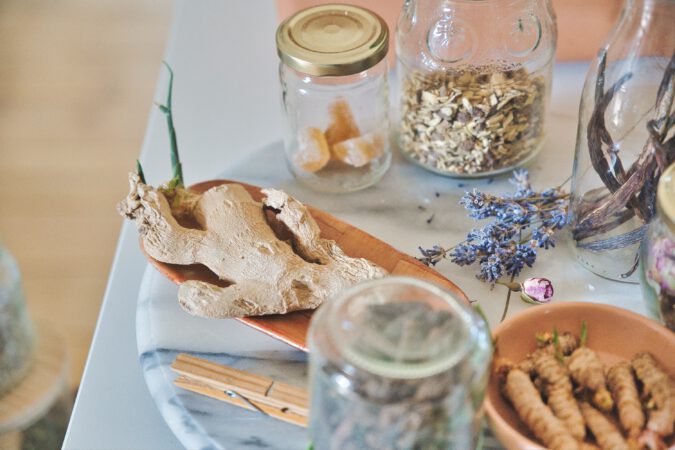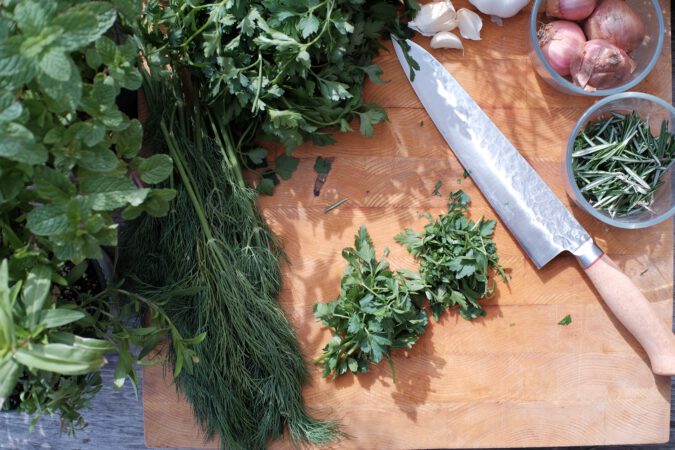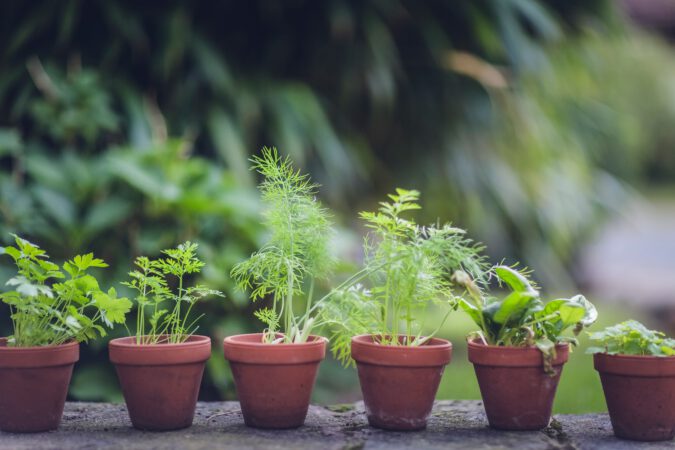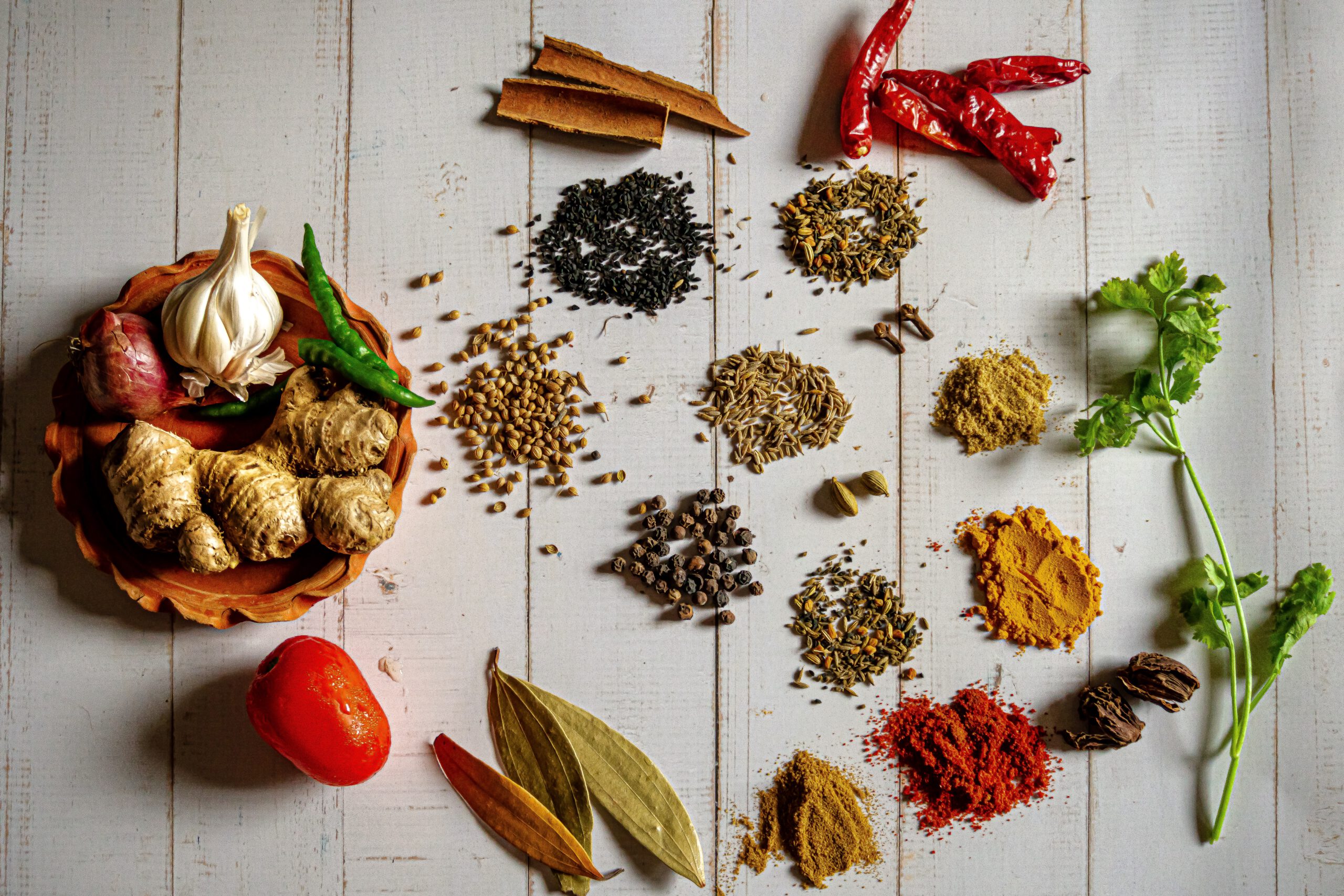Water is widely known to be beneficial to our health and brains. But did you know that herbs and spices not only taste good, but they are also good for our health and increase brain power?
We demonstrate how beneficial herbs and spices can be. They can improve concentration, aid in learning, and even increase intelligence.
Furthermore, herbs and spices are inexpensive and simple to incorporate into daily meals. Here are the top 15 brain-boosting herbs and spices.
Apigenin stimulates the formation of new brain cells.
Apigenin is the magic word in all of this. Because this “miracle drug” is found in (almost all) of the following spices, it has numerous beneficial effects on the brain and memory performance.
According to scientific studies, the light yellow plant compound apigenin found in herbs not only prevents Alzheimer’s and dementia, but also promotes the formation of new brain cells.
On the one hand, this means avoiding diseases like Parkinson’s, but it also means increasing or preserving your fluid intelligence – even as you get older.

- Oregano
- Cinnamon
- Celery
- Garlic
- Thyme
- Peppermint
- Basil
- Ginger
- Cloves
- Pepper
- Sage
- Parsley
- Turmeric
- Ginseng
- Guarana
Oregano
Is oregano in your pantry? Then dig in, because the spice can not only regulate sleep, anxiety, and appetite, but it can also fight free radicals – and thus the brain’s “natural enemies” – while also increasing your learning ability and concentration.
Cinnamon
Cinnamon is high in antioxidants and has been shown to regulate blood sugar levels as well as have anti-inflammatory properties. Cinnamon, above all, improves memory and concentration. By the way, you don’t even have to eat it; just the smell of cinnamon boosts your brain power. So, from now on, keep a cinnamon stick near your desk at work!
Celery
The apigenin content in celery is approximately 4.61 milligrams per 100 grams. As you have already learned, this results in the formation of new brain cells as well as improved memory and concentration.
Scientists recommend squeezing the celery and drinking approximately 100 milliliters of juice three times per day. To be sure, “delicious” sounds different! Instead, how about a delicious pureed potato soup with celery?
Garlic
Garlic is well known for its health benefits. It is particularly well-known for its beneficial effects on blood pressure and the cardiovascular system. As a result, it naturally improves blood flow and efficiency in the brain.
Recently, scientific research has shown that garlic actively fights cancer cells in the brain.

Thyme
Thyme contains a high concentration of docosahexaenoic acid (DHA), as well as other beneficial omega-3 fatty acids. As a result, (age-related) nervous diseases and cognitive disorders can be avoided.
Peppermint
Peppermint, like cinnamon, has the ability to improve concentration, attention, and memory.
However, when used as a tea or spice, the “wake-up call” reveals its full power: peppermint contains 8.71 milligrams of apigenin per 100 grams, nearly twice as much as celery.
Basil
Like oregano, basil also has a high concentration of antioxidants, which, like oregano, kill free radicals.
It also reduces inflammation, helps prevent intolerances, intestinal problems, and allergies, and can help prevent or treat food poisoning.
Basil also works against stress, and thus against the shrinking of gray matter described earlier. Finally, fresh basil is simply delectable.
Ginger
Ginger, particularly in tea, has grown in popularity in Germany, but it has long been a staple of many other cultures’ diets.
After all, ginger has a positive effect on your entire body, including fighting free radicals with over 25 different antioxidants.

Cloves
Cloves are especially good for your brain because they reduce stress, make brain cells work better overall, and help get rid of toxins.
Experts agree: cloves are a true miracle cure for concentration, memory, and learning issues.
Pepper
Stress shrinks the brain, but red and black pepper stimulate its growth. They contain piperine, which stimulates the brain’s release of beta-endorphin, a stress reliever.
This not only makes you feel more relaxed and happy, but it also aids in the recovery of your brain from previous stress. Finally, black and red peppers contain one thing: apigenin.
Sage
Do you only consume sage tea when you have a cold or a sore throat? Then you should do so as soon as possible! Why? because sage improves memory, according to numerous studies.
As a result, it is your little miracle cure on the way to “elephant memory.” And if you’re sick of sage tea, how about some delectable “sage gnocchi”?
Parsley
Apigenin is also abundant in parsley, with 302 milligrams per 100 grams. Not only that, but parsley contains luteolin, which actively fights inflammation in the brain.
Did you also know that chewing on fresh parsley can help to mask the odor of garlic? If that isn’t a convenient and healthy combination!

Turmeric
Curry is made (mostly) of bright yellow turmeric. When it comes to a “healthy” brain, it’s considered the absolute miracle plant.
Turmeric not only stops dementia and Alzheimer’s disease, but it also helps people remember things better, works as a natural antidepressant, and can even protect the brain from damage caused by drinking too much.
It also has a lot of antioxidants and helps the brain make new cells.
Turmeric, by the way, has anti-inflammatory properties. Need more reasons to include more curry in your diet?
Ginseng
Ginseng has been used for centuries in Asia as a tonic for the body and mind. Some of the root’s ingredients can help with infectious diseases and stress-related fatigue.
But, more importantly, in this context, ginseng improves mental concentration, reaction time, and performance. It has also been shown to have neuroprotective properties.

Guarana
Guarana
Guarana has five times the amount of caffeine compared to a coffee bean. That is why it is also sold as a pick-me-up.
The guarana is a liana that belongs to the soap tree family. It originated in the Amazon region and is also known as the caffeine liana.
The South American Indians use guaraná as a natural medicine. Guaraná powder is said to have a positive effect on cognitive functions and concentration. We feel more alert, more efficient and more resilient.
Conclusion
The 15 herbs and spices presented here can have a very positive effect on your brain when consumed on a regular basis. Incorporate them into your meals for a cheap and tasty way to improve your memory and concentration.


